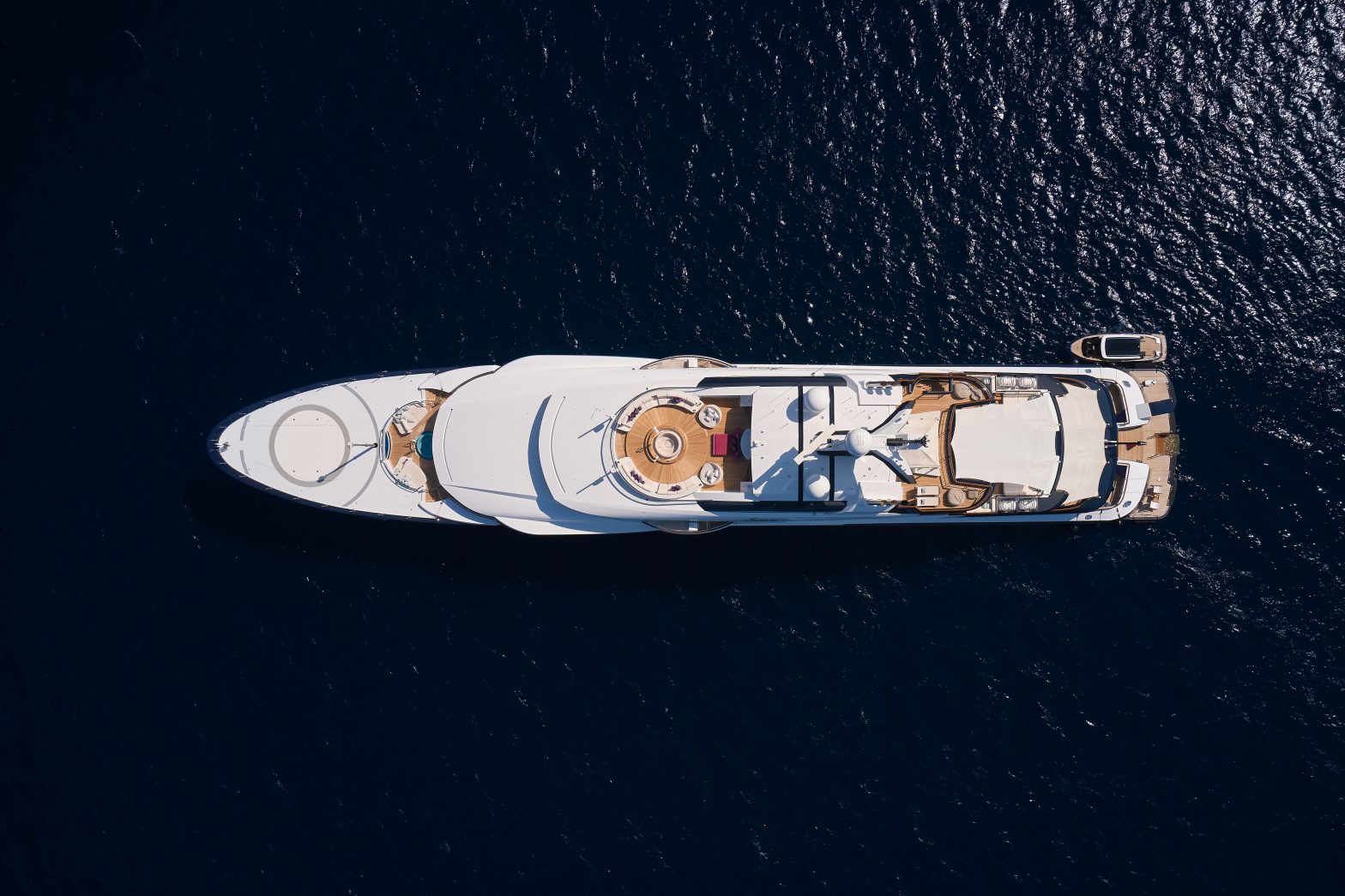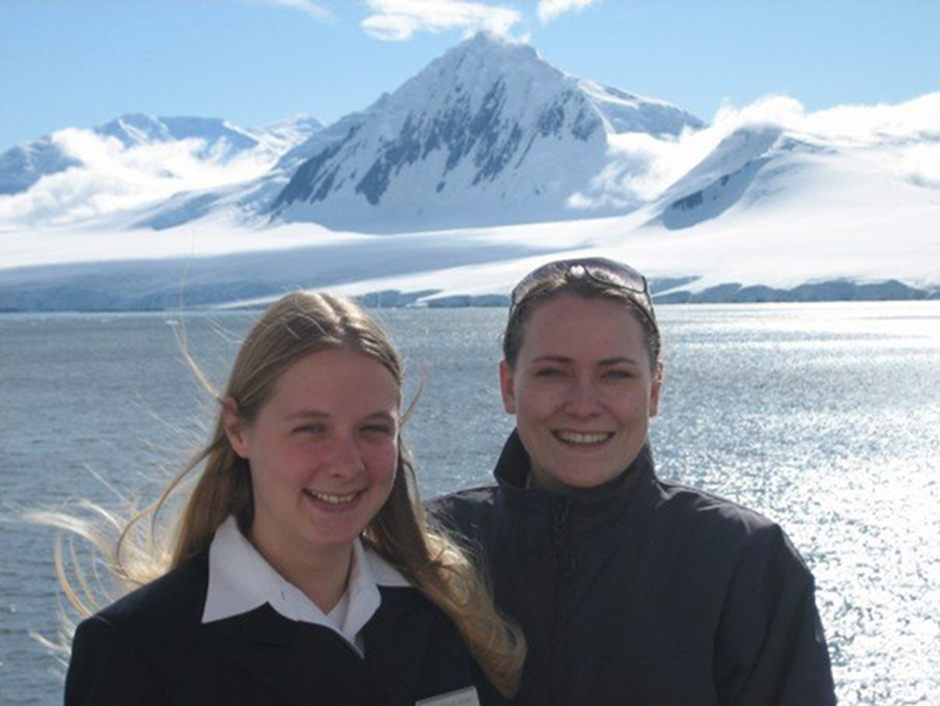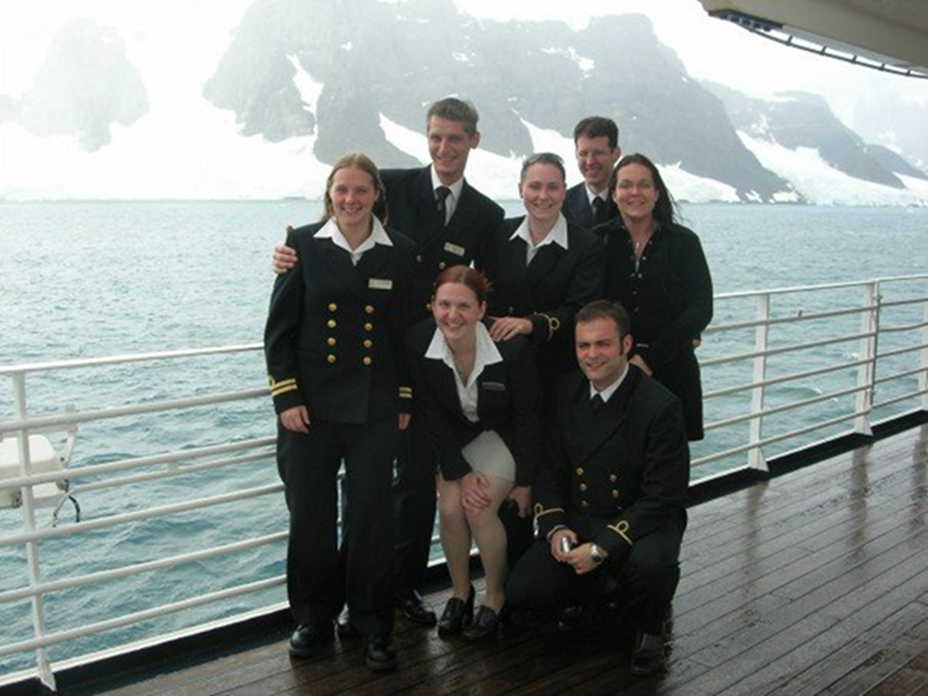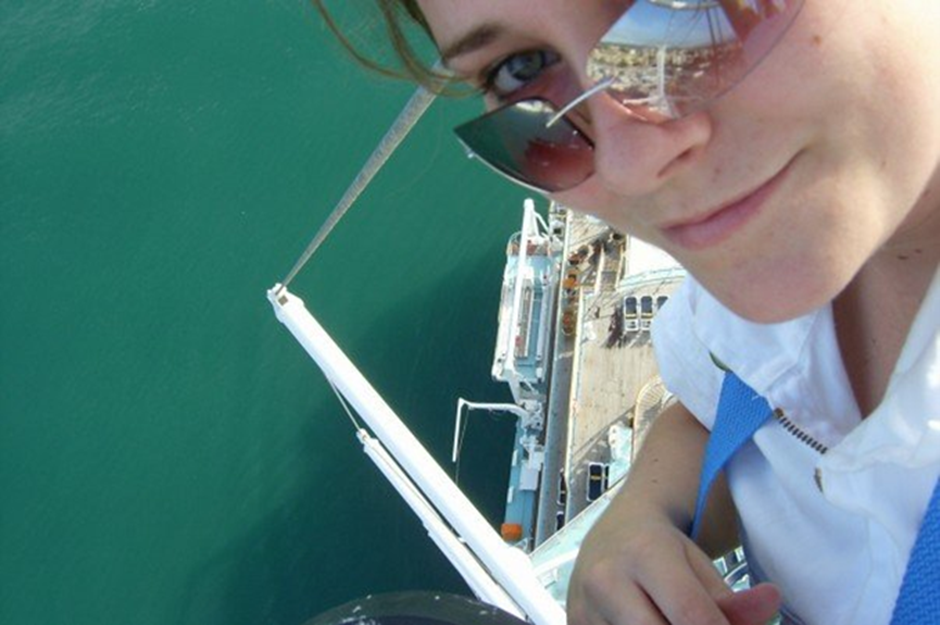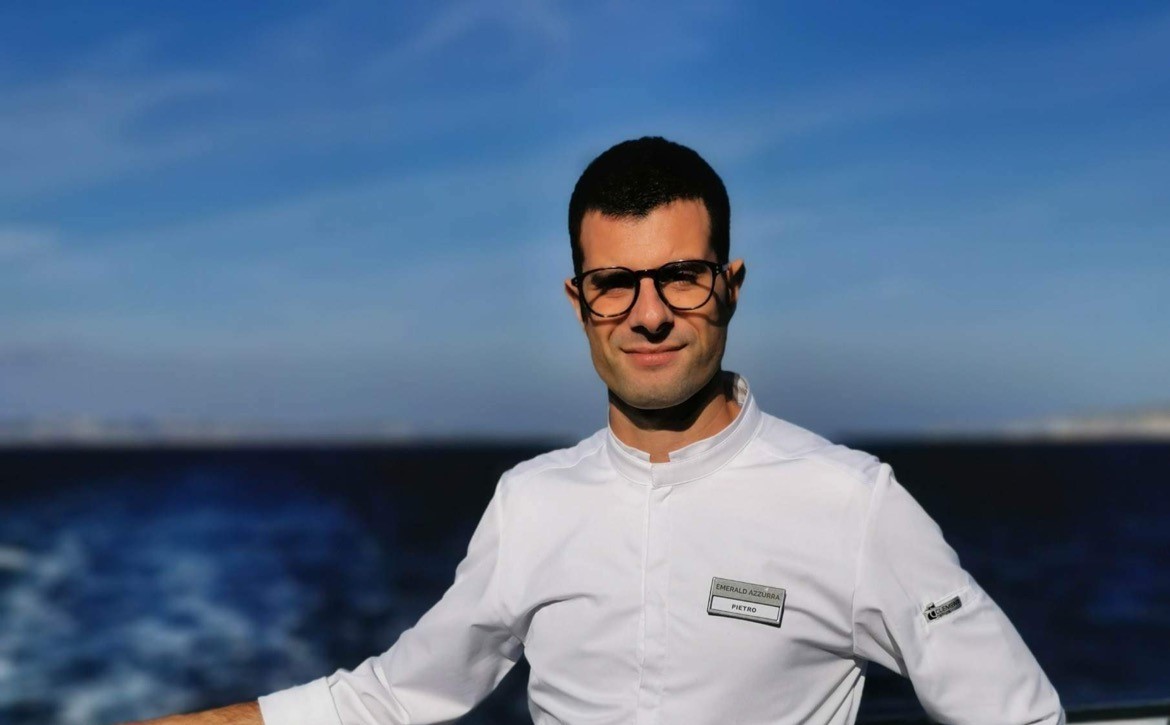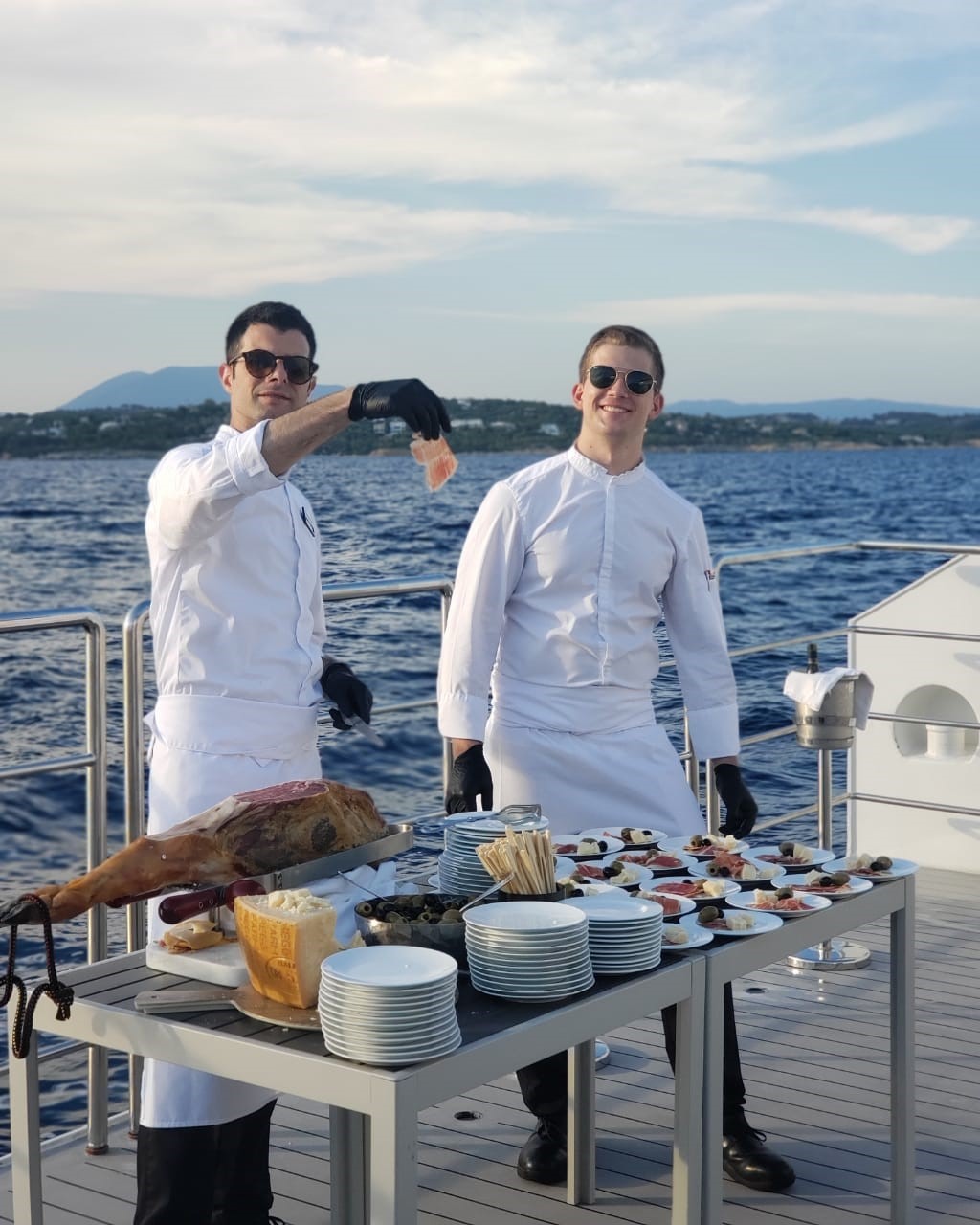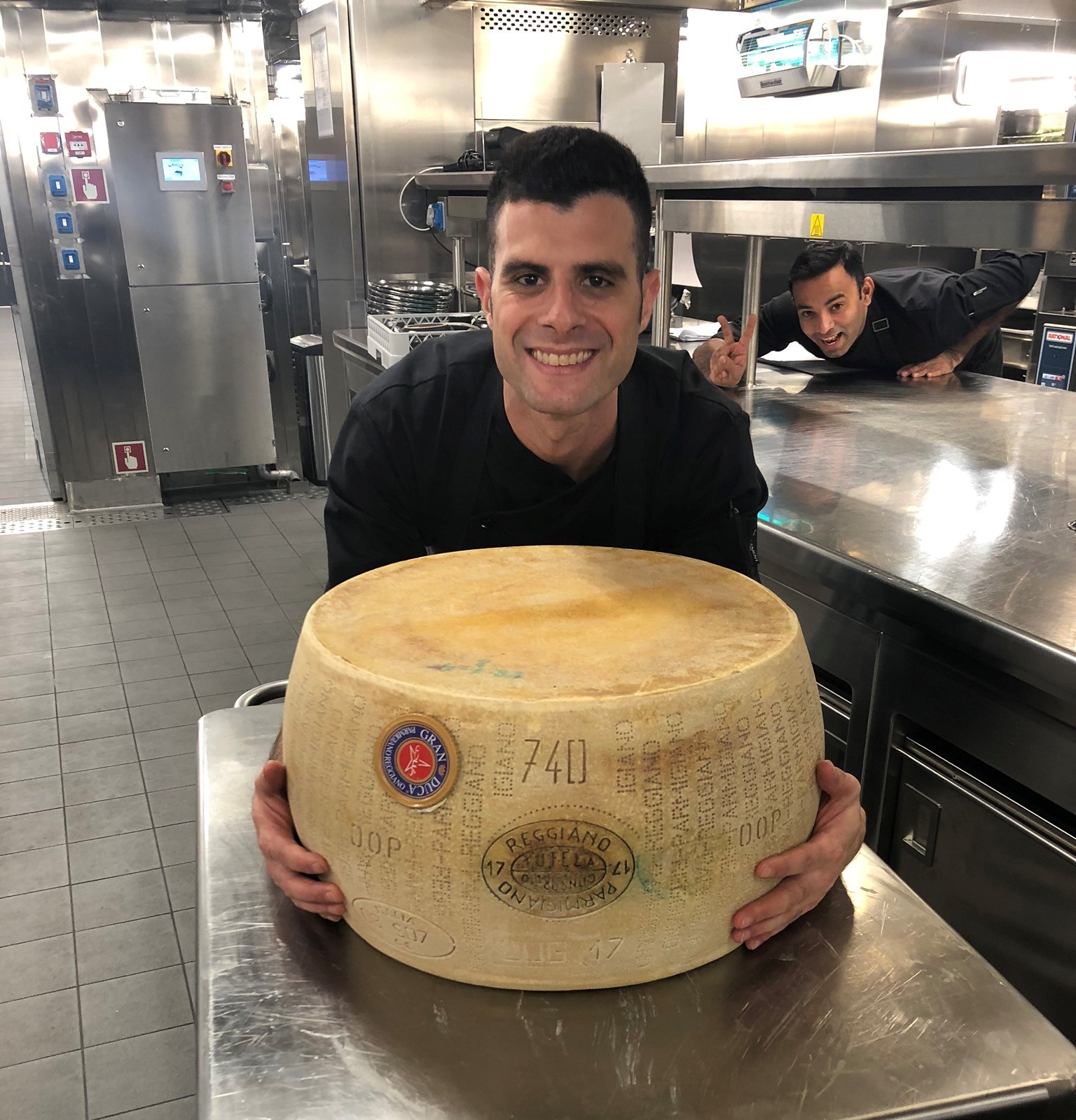We sat down with Viking Crew’s Assistant Placement Manager, Lien Eggermont, to learn more about her spontaneous career at sea, and the inspiring opportunities a life at sea can offer.
What made you consider a career at sea?
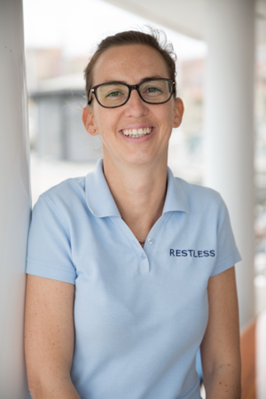
Lien: “I hadn’t really considered a career at sea before my time as a stewardess. In all honesty, I was thrown into the industry, as my partner was working on board yachts at the time, and there was a vacancy for a stewardess on the vessel.
In 2008, after leaving my job as an Overseas Representative for Thomas Cook, I joined my partner on board a sailing yacht, for a French billionaire.
I was only 24 or 25 at the time, and with the owner being French, it was very easy for me to communicate with him, as I am from Belgium.
I worked on that yacht for two years, before working as a stewardess for a Russian family . Then two years later, we joined a charter yacht for the season.
We stayed there until March 2013, when we then took over a Motor Yacht, and had three busy charter seasons on board, cruising the Mediterranean with international guests.”
Was a career at sea always an option for you?
Lien: “No, I grew up in Belgium where there isn’t much of a coastline, so a career at sea, or yachting, was never something I had considered. The industry had always been much more of a ‘secret society’ and wasn’t advertised as widely as it is now.
Therefore, if it wasn’t for my partner encouraging me to join him at sea, I probably wouldn’t have had a career at sea at all.”
What was your role?
Lien: “I began as a stewardess, and worked my way up to a chief stewardess over the course of seven years, always having worked in the interior department.
Being a stewardess involved doing laundry, setting tables for meals, cleaning areas, all to a very high standard. However, it can also involve being a cook, or helping out on the deck – it’s very varied.
The owner of the first yacht I worked on loved fishing, and so unfortunately, he wanted me to make soup with his catch of the day! Gosh, how I hated the smell of that soup.”
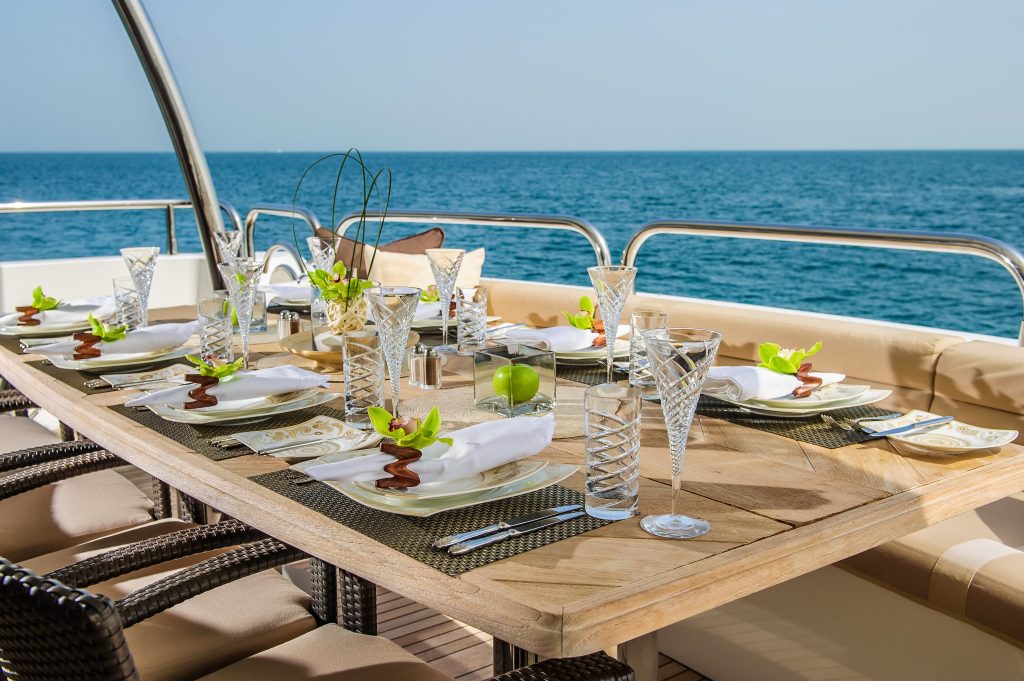
Would you recommend a career at sea?
Lien: “Yes, I would recommend a career at sea. You get to see so many places, and if you’re lucky and get the chance to go ashore, you should definitely take the opportunity. The south of France is always nice, Italy and the Turkish coastlines are also very pretty. Every place has something special that you remember.
You also get to work with different cultures on board, and learn to understand and appreciate them. In the yachting industry you may work closely with influential people, and can learn a lot from them as well.”
Would you still choose a career at sea if you were a young person/teen now?
Lien: “I don’t regret my career before becoming a stewardess, because as a teenager I didn’t know this industry existed. I studied Travel and Tourism at University, so I always enjoyed learning about travel.
Also, Belgium isn’t a seafaring country, so a career at sea wasn’t something I had connections to.”
What opportunities can a career at sea offer?
Lien: “Working at sea will certainly set you a few steps ahead for when you come ashore. Especially if you’re savvy with your money you will have a nice pot of savings to support you when you leave.
Working at sea will also give you the opportunity to learn lots of transferable skills which can easily be transferred back ashore, especially within the hospitality industry. If you work on luxury, high-end yachts, you’ll have been dealing with potentially very difficult clients, which teaches you to be more resilient, for example.”
What advice would you give to someone deciding on a career at sea?
Lien: “Especially for younger people, I would advise finding a job that is related to the career at sea they would like to follow. A lot of clients require some level of work experience, to prepare the seafarer for their career at sea. Therefore, I would advise working in a high-end hospitality role such as a restaurant or hotel. A couple of years experience is ideal before transferring to yachts.”

Is there a life after Yachting?
Lien: “After spending a few years at sea, you might decide you want to move back ashore, and it’s another lifestyle change. You suddenly have to rewrite your CV and seven years of yachting have to be explained to shorebased employers who are not familiar with the industry.
It’s essential that you have financial security behind you before you make the move. There are suddenly a lot of bills to pay, you’ll need to buy a house, car, workwear, (forget the shorts & T-shirts) to prepare you for your new life…I found a lot of helpful information on a Facebook group for stewardesses, about how to transfer yachting skills, which helped me a lot.
At the time, P&O Ferries in Dover was looking to set up a Communications Team that would give operational updates to their tourist & freight customers. The team would work 24/7, sending updates in four languages, on X (formerly known as Twitter) and other social media platforms. So, I applied, and was successful.
It was shift work, which I didn’t mind as I was used to the long hours on the yachts. The job was still in the maritime industry and when Captains would call in about technical issues, I had an understanding of what they were referring to, as I had helped out on deck and was able to explain it to disgruntled customers.”
It was great talking to Lien and discovering more about her career at sea.
If you’re looking for your next exciting position at sea? Click here to explore our current vacancies at Viking Crew.
Date of Issue: 19th June 2024
Last Edited: 16th August 2024
